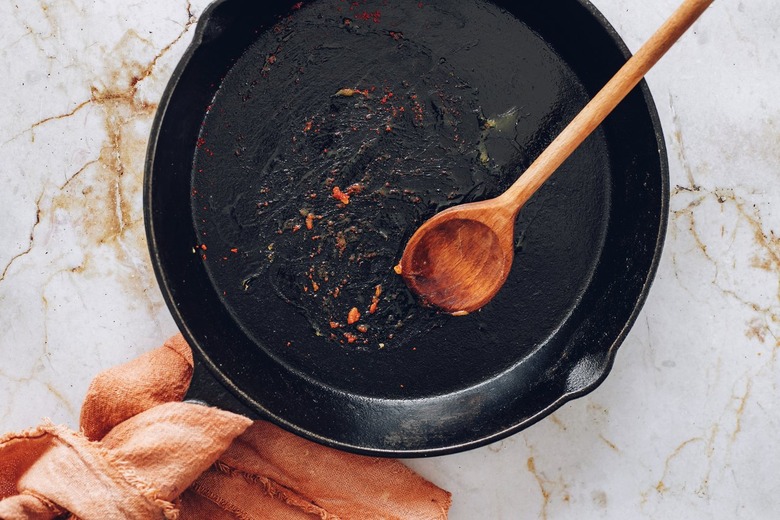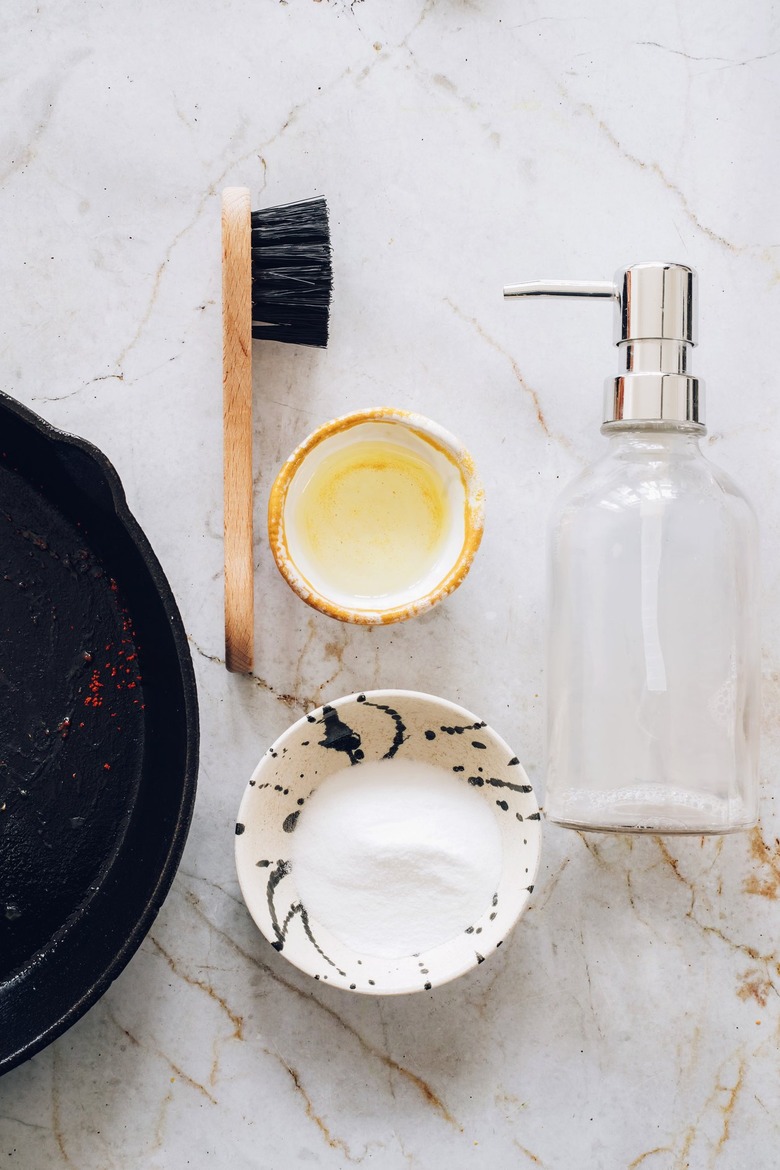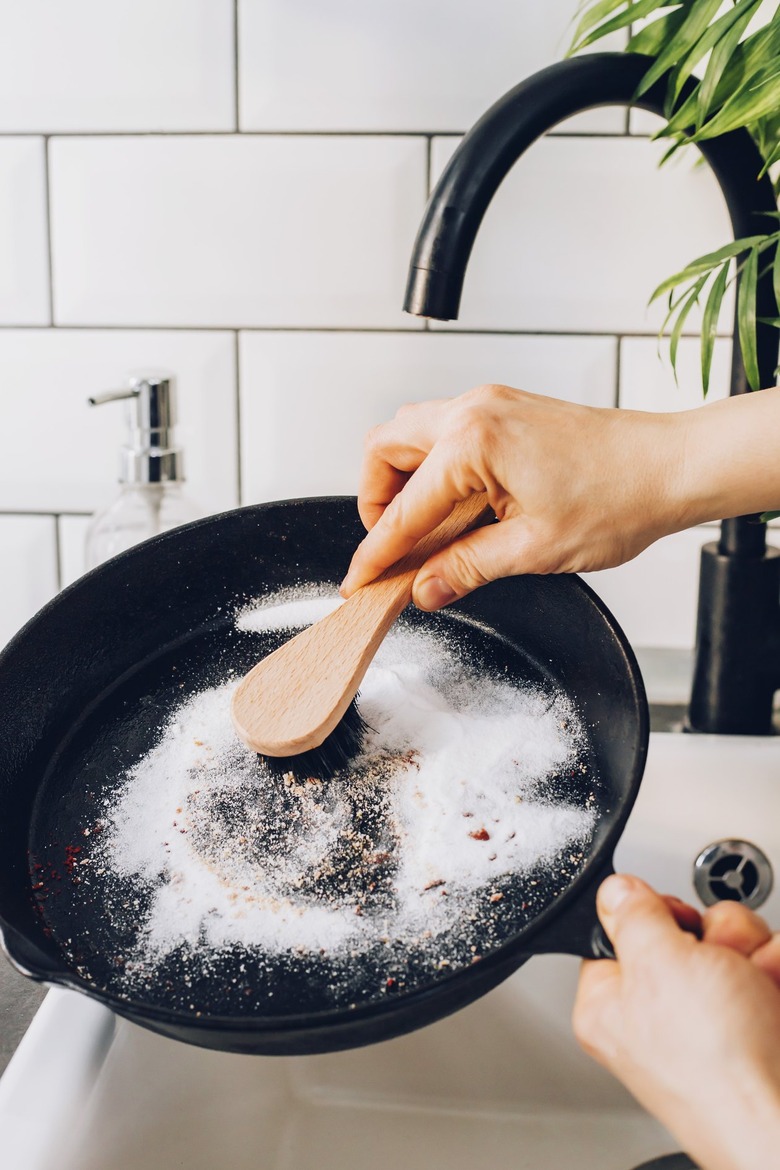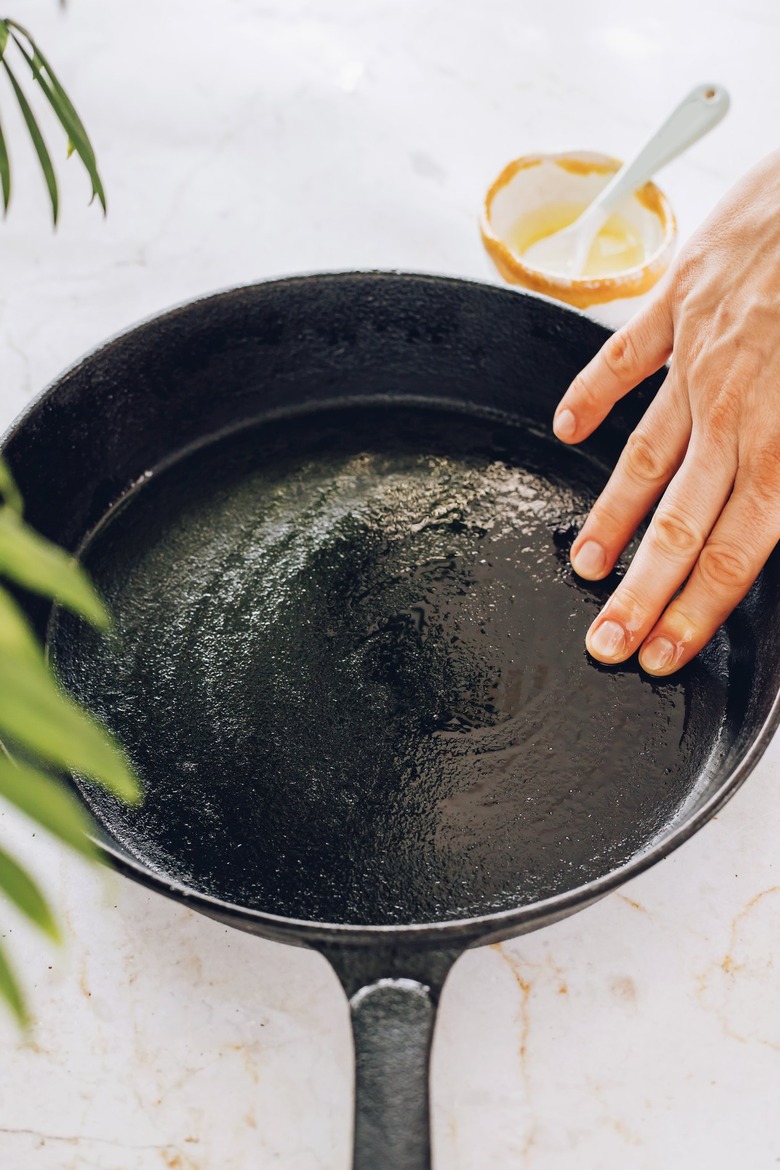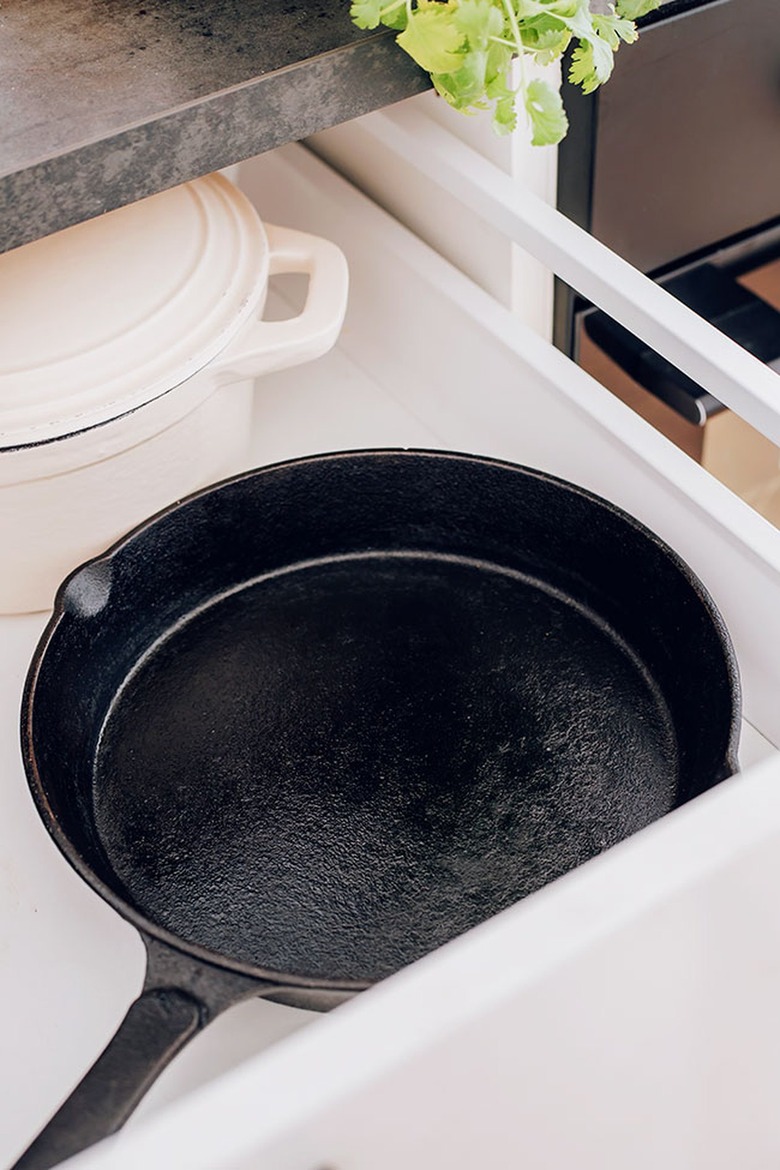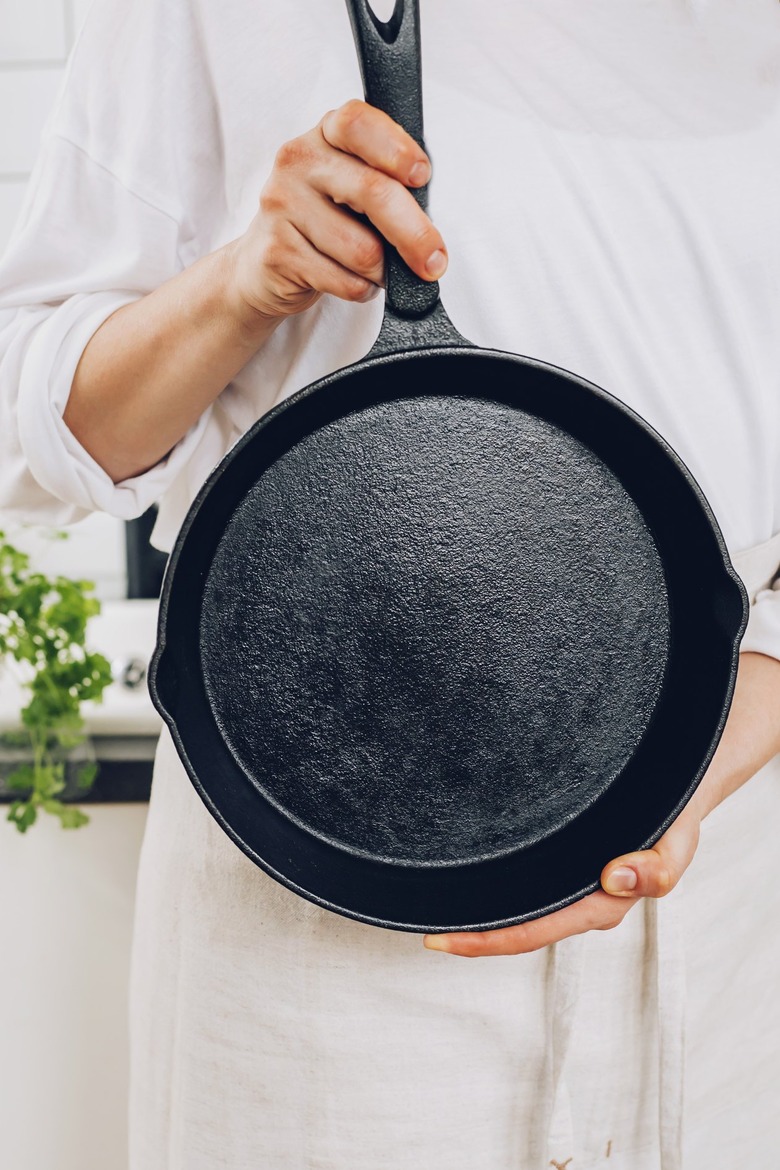Easiest Way To Clean A Cast Iron Skillet
Cast iron skillets often get a reputation for being a little finicky. First they need seasoning, and then it feels like there's a long list of dos and don'ts in using and cleaning them.
Fear not! Cast iron skillets get handed down for generations for a reason. They're remarkably sturdy, and it's really hard to completely ruin an iron skillet.
These versatile pans are excellent for baking, searing, and frying, plus they provide health benefits, so stop worrying about handling them the wrong way. Here's how to properly care for and clean a cast iron skillet.
Things Needed
-
Baking soda
-
Soap and water
-
Scrub brush
-
Vegetable oil
-
Paper towels
1. Scrub with baking soda.
Clean the skillet right after cooking with it, as soon as it's cool enough to handle. Food particles will be easier to remove when it's still warm.
Wipe the skillet out with a paper towel. That might be all that's needed to remove leftover oil or food. If food is stuck on, add one tablespoon of baking soda to the pan and use a brush to dislodge the gunk.
2. Wash with soap and water.
Then wash the skillet with warm water and a bit of dish soap. Yes, soap is okay!
Don't be afraid that dish soap will ruin your seasoning. During the seasoning process, the heat breaks down the oil into particles that bond to the iron, creating a layer of surface protection. So yes, dish soap will remove oil, but it won't wash away the seasoning coating.
3. Keep the skillet dry.
After cleaning, thoroughly dry the skillet with a towel or paper towels. Soap and water won't hurt the skillet but leaving it wet will.
Don't leave the skillet sitting or soaking in water. And if you're wondering, never put a cast iron skillet in the dishwasher.
4. Replenish the oil.
After the skillet is clean and dry, add a few drops of canola or vegetable oil inside the pan and spread them evenly using your fingers or a paper towel.
If the pan develops rust, or food starts to stick while cooking, follow these simple steps for creating a new protective layer.
5. Store in a dry spot.
Store the skillet in a dry place. Some people worry about the iron chipping, but it's okay to keep skillets stacked. Cast iron is tougher than you might think.
6. Use it often.
Don't be intimidated by your cast iron skillet! Using it often for baking and frying will help maintain the skillet's seasoning, so the more you cook with it, the better it will work.
